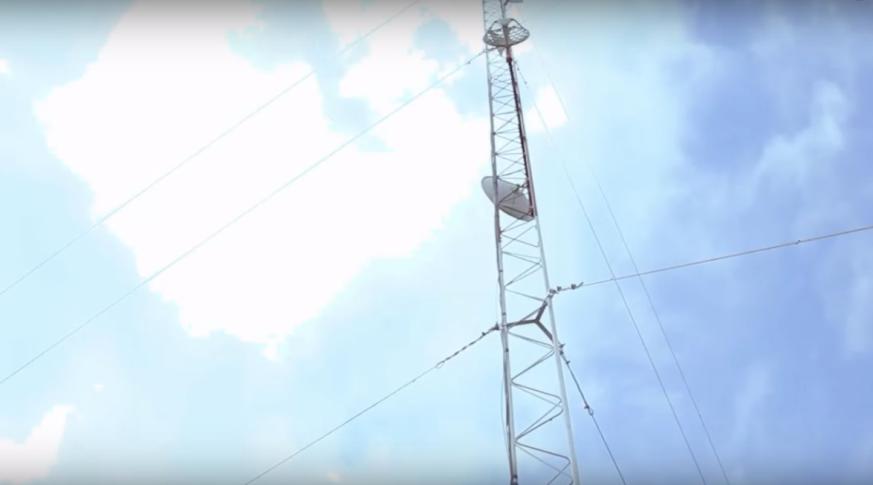
A partnership between 48percent.org, APC and Rhizomatica is supporting five organisations worldwide in their efforts to strengthen community networks and respond to the challenges in the face of COVID-19. 48percent.org has joined efforts with the Local Networks (LocNet) initiative and issued a special grant call to community networks dealing with the pandemic and the lack of connectivity.
LocNet is an initiative led by APC and Rhizomatica to contribute to an enabling ecosystem for the emergence and growth of community networks and other community-based connectivity activities in developing countries.
The call was directed to community network organisations that previously received APC’s catalytic intervention grants and asked them about COVID-19 effects on their projects. From 15 inspirational applications in different regions, five organisations were selected to receive the financial support: AlterMundi (Argentina), Fantsuam (Nigeria), BOSCO (Uganda), REDES (Mexico) and Servelots (India).
About the responses to COVID-19
AlterMundi - Argentina: AlterMundi has many years of experience in promoting community networks and all the aspects that make them sustainable, such as training, maintaining mesh networks, development of free and open source software, and political-regulatory advocacy. With the grant, three selected rural communities will start their own networks and connect them to the internet, narrowing the digital divide during COVID-19. In addition, the funding will also go to installing 12 LibreRouter mesh Wi-Fi routers that each will connect at least one family and, in most cases, more families in the communities.
Fantsuam - Nigeria: Information and communication technology (ICT) services are an important part of the work of Fantsuam, an organisation whose mission is to empower community members to find employment and income means and meet their own development needs. People living with disabilities are among the hardest hit by the COVID-19 pandemic. Even under normal circumstances, people with disabilities have less access to education, health care and income opportunities, which is only exacerbated by the current situation. With this grant, Fantsuam will provide 50 people in the Kafanchan area with devices, airtime, digital literacy training, and information on how to obtain government funding opportunities to cushion the effects of COVID-19 on households and individuals. Many people with disabilities are not aware of these services, nor do they know how to access them, especially those living in rural and remote communities.
BOSCO - Uganda: BOSCO is a leading non-profit organisation in the area of ICTs and community networks in Uganda. Internet access in the most rural parts of Uganda is either non-existent or not affordable. With the lockdown due to the COVID-19 pandemic, Uganda's government proposes distributing educational information, market information, and agronomic information through television and radio, but this is often not suited or accessible only to a few. With the grant, BOSCO wants to establish two new Wi-Fi hotspot sites (in addition to the 32 BOSCO Uganda ICT centres already established). Through the intranet, they will liaise with the government to provide accurate health information and create awareness of students' online materials. In addition to this, the Wi-Fi hotspots will also help in spreading information on the coming elections, which will most likely be conducted online.
REDES - Mexico: Redes por la Diversidad, Equidad y Sustentabilidad A.C. (REDES A.C.) is a civil association that works to create conditions that allow indigenous people to have their own media, which meet their principles and values, as well as access to non-indigenous media without discrimination. One of the ways they do this is through the generation of telecommunication projects with indigenous communities. Because the COVID-19 strategy leans heavily on digital responses, access to the internet in rural and indigenous communities is indispensable. As commercial models of connectivity are not compatible within the context of many indigenous communities, REDES A.C., together with their partners, works with an alternative connectivity model that guarantees the communities access to the internet and the dissemination of information. The grant will be used to improve the licensing process for spectrum use, acquire new equipment to improve the infrastructure, and carry out training, design and implementation of optical fibre installation.
Servelots - India: Servelots, together with Janastu, has been engaging with Wi-Fi mesh networking since 2004 after the tsunami havoc on the east coast of South India. Over the last year, they have set up a community network to experiment and deploy new initiatives in their rural lab area. After the COVID-19 lockdown and school shutdowns, poor agricultural and daily wage-earning parents have been struggling to get school sessions over the web to their children. To counter this, Servelots and their collective will introduce “webinar” Raspberry Pi for small low-income neighbourhood clusters to facilitate online classroom sessions. The project will take place in a valley where internet speed is low and spotty. As part of the grant, they will realise a high-speed Wi-Fi connection from a nearby town, connect the village clusters to the mesh network and provide open source and Raspberry Pi-based webinar devices to ensure inter-cluster and school teacher sessions. With this project, they wish to demonstrate that this could be an inclusive alternative for students who cannot afford individual smartphones.
About the supporting organisations
48percent.org's mission is to facilitate equality through access to open communication. According to the organisation, their way to do that is by supporting other organisations in their efforts, whether through donating their time and resources or through financial contributions.
APC’s mission is to create a just and sustainable world by harnessing the collective power of activists, organisations, excluded groups, communities and social movements, to challenge existing power structures and ensure that the internet is developed and governed as a global public good.
Rhizomatica works as a bridge between the technology's potential users and the engineers and developers of these efforts to ensure the technology is deployed and appropriate for use in the developing world. Its mission is to increase access to mobile telecommunications to over two billion people without affordable coverage and 700 million with none at all.